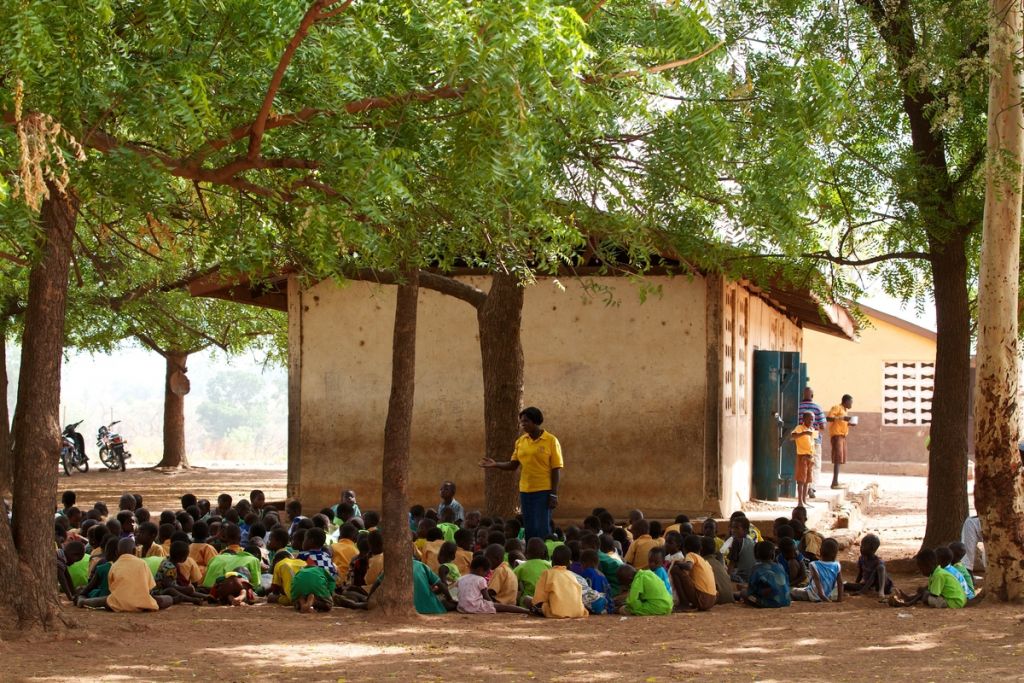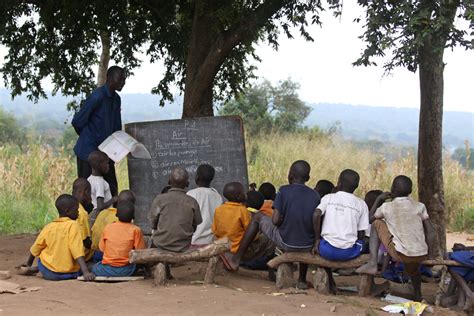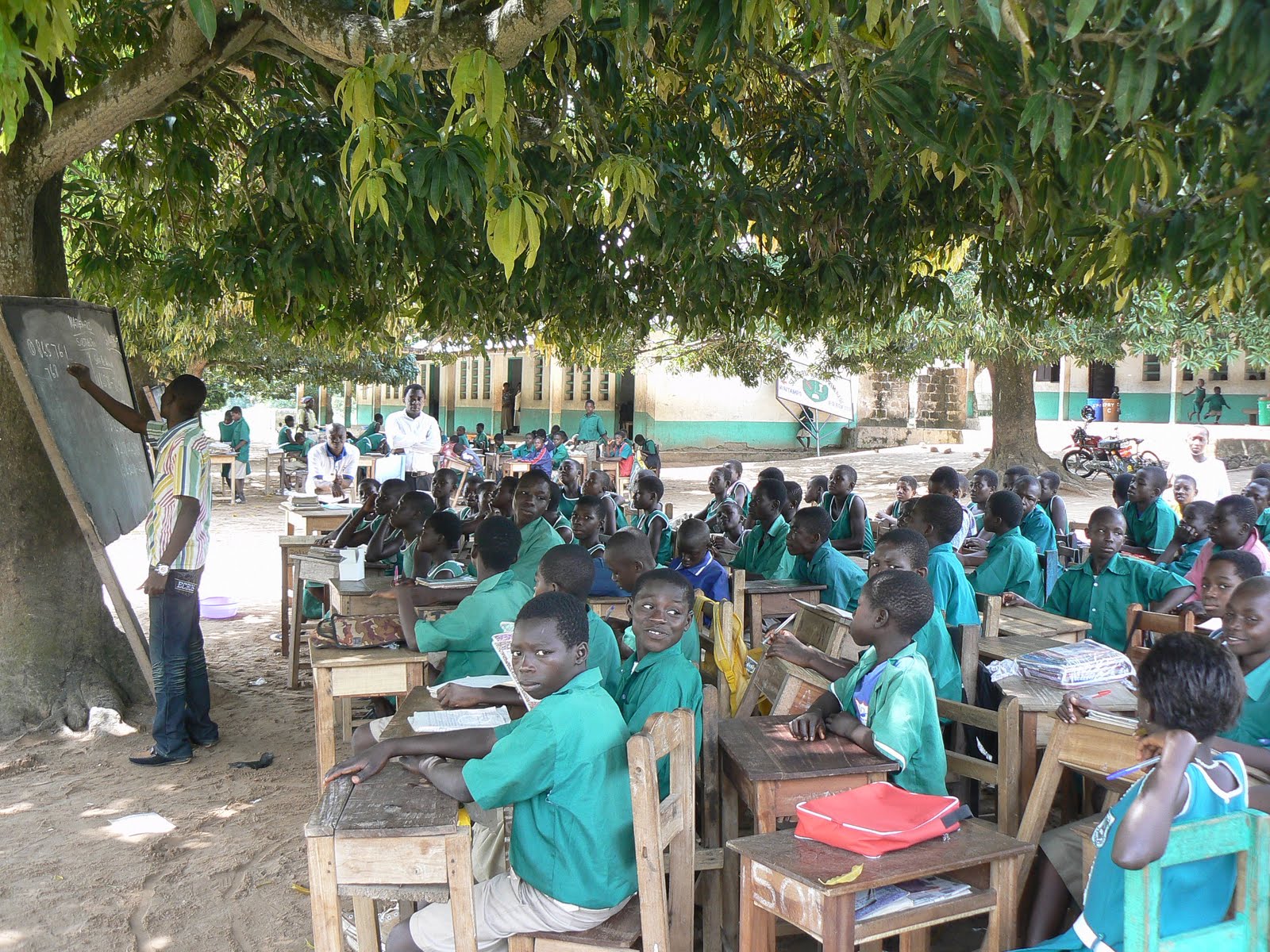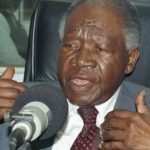Ghana: Much Ado about A Cathedral
Posted by By Akogun Akomolafe at 17 October, at 08 : 53 AM Print

Warning: count(): Parameter must be an array or an object that implements Countable in /home/alaye/public_html/wp-content/themes/Video/single_blog.php on line 56
There is no question that President Nana Dankwa Akufo-Addo, a scion of one of Ghana’s most illustrious families, and son of a former president, is among the most qualified to ever to occupy the presidency of Ghana.
The 72-year president, a very astute and experienced politician, told Ghanaians that he has extensively studied their problems and has all the solutions to solve them in a short time.
After rejecting his presidential bid twice, his compatriots decided to give him a chance at his third try in the December 2016 elections.
Today, discombobulated Ghanaians are asking why their elderly leader, with all his vast experience in both private and public life, is refusing to focus on his job and appears to court unnecessary controversy.
Nana Akuffo-Addo’s presidency was, from the beginning, inauspiciously marred by the public ridicule that greeted his inaugural address, when it was discovered that his speech-writers engaged in massive plagiarism, lifting texts verbatim from several US presidents, among others.
The dust had barely settled on the scorn poured on Ghana by local and international critics, when the president went to cut the sod for a National Cathedral.
Many Ghanaians shook their heads in disbelief and asked why their new leader thought a cathedral was a priority in a country where the provision of life’s basic necessities remains a major production and one where every available space is dotted with either a church or mosque. A good example is the large industrial estate at Kaneshie in the capital, Accra, where factories and warehouses built by Ghana’s founding president, Nkrumah, have been turned into Megachurches.
At the nation’s 61st Independence anniversary celebrations in March this year, the president unveiled a model of the National Cathedral.
Designed by the Ghanaian-British architect Sir David Adjaye OBE, the president enthusiastically told his countrymen that when completed, the Cathedral would serve as a national place of worship, and a place to hold important religious ceremonies. The design showed landscaped gardens, several chapels, a baptistry, a 5,000-seat auditorium, lots of bells and whistles, and Africa’s first bible museum and documentation center.
The world-renowned architect of the project proclaimed: “It is an immense honour to be granted the opportunity to contribute something of this scale and import to my home country. I have sought to craft a building that not only understands its landscape but one that will be unique to Accra and the Ghanaian nation”.
Many critics asked why Mr. Adjaye who helped design an International Children’s Cancer Treatment Center in Rwanda thought it fit to design a cathedral for his homeland.
Ghanaians, who thought that their president had forgotten about his cathedral, were rudely awakened when at the tail end of August 2018, the government threw the country into a protracted, and totally unnecessary religious controversy, when it was announced that the National Cathedral project would be going ahead.
Confounded Ghanaians, already groaning under unprecedented economic hardship, are asking why their president, who promised to fast-track the rebuilding of the economy, build a factory and a dam in each of the country’s 212 districts, finds it necessary to consider the building of a cathedral a priority, when many of his electoral promises remain largely unfulfilled.
To begin with, per the constitution, Ghana is a secular state. In plain language, the government should not dabble in religious affairs. The president is one of the country’s celebrated legal luminaries; concerned citizens are asking why he is choosing to ignore the constitutional provisions.
It is perhaps the choice of the land allocated to the Cathedral that truly scandalized citizens. Attempts by Government officials to convince citizens that the government was not sponsoring the building was punctured when it emerged that the government has allocated six hectacres (14 acres) of Prime State land in the choices part of the Capital, Accra, for the project. This will necessitate the pulling down some landmark buildings including the Scholarship Secretariat, the Judicial Training Institute, Passport Office*. Also slated for demolition are 10 six-bedroom bungalows the Judicial service built five years ago to house Court of Appeal Judges.
Many Ghanaians are not amused. Cultural Anthropologist Osofo Kofitse-Ahadzi, is unsparing in his criticism. In his view, “the project is not only a useless exercise and a waste of resources, it’s a diversionary tactic being employed by the government to sway attention from its incompetence.”
A Legal practitioner and host of Joy Flagship program Newsfile, Samson Lardi Anyenini, said, “There is no need to build a cathedral on a foundation of lies.”
Cultural Critic, Nii Kotei Nikoi, questioned the need for a new church when: “In one neighbourhood you can have five to six churches. The fundamental problem is that Accra is saturated with churches.”
The General-Secretary of the Christian Council of Ghana, Cyril Fayose, while stressing that he was not against the cathedral, said more details were needed. “The government meddling in church matters sometimes raises eyebrows to wonder why they are doing it… We are not so sure, the motives behind it are not very clear to us.”
A concerned citizen, James Kwabena Bomfeh Jr filed a suit at the Supreme Court seeking to stop the Cathedral Project, arguing it is unconstitutional.
For supporters like John Peter Amewu, a former Lands and Natural Resources Minister, there is nothing wrong with the project: “We want to build the National Cathedral in a strategic place, something that befits this country…and that is why we’re looking for a very prime area that will fit the status of the kind of building that the committee envisaged…”
The Coalition of Muslim Organisations (COMOG), an Islamic group, described the proposed construction of a National Cathedral by the government as amounting to the state meddling in religious matters. The organisation faulted the government for proceeding with preparations to put up the cathedral before a suit challenging the process at the Supreme Court is heard.
COMOG National President, Sheik Dr. Al-Hussien Zakaria, stated: “COMOG has no objection to the building of a cathedral. Christians in Ghana are capable of building a cathedral without government’s involvement or sponsorship. Just as the Government of Ghana has not been involved in the construction of religious edifices for Muslims, Traditionalists, Hindus etc., it should not be involved in the efforts by Christians to build themselves a cathedral.
“At the same time, we call on President Nana Addo Dankwa Akuffo-Addo and the promoters of the building of the cathedral to halt the planned demolition exercise and any other activities that will cause permanent damage to or loss of state property until the suit at the Supreme Court is heard.”
Ghanaians dearly wish that their president would focus more on fixing the economy than dabble in religious affairs. Despite optimistic noises from officials, the economy is performing rather poorly. Seven banks have collapsed since the NPP government came into office in January 2017. The UT and Capital banks collapsed in August 2017. Five banks (UniBank, The Beige Bank, Construction, Royal and Sovereign) spectacularly went under in August this year, resulting in the loss of thousands of jobs (https://www.myjoyonline.com/news/2018/September-10th/2000-defunct-bank-staff-to-lose-jobs-sizeable-number-to-be-retained.php)
The Ghana Cedi is also performing poorly against major currencies. Many Ghanaians are among those braving the Sahara and the Mediterranean to seek greener pastures in Europe.
Prophetically, one of Ghana’s most celebrated poets, Kofi Awonoor, who was tragically killed during the al-Shabab terrorist attack at the Westgate shopping mall in Nairobi in 2013, appeared to have foreseen the hullabaloo the building of a Cathedral would generate. Here is his poem, The Cathedral:
“On this dirty patch
a tree once stood
shedding incense on the infant corn:
its boughs stretched across a heaven
brightened by the last fires of a tribe.
They sent surveyors and builders
who cut that tree
planting in its place
A huge senseless cathedral of doom.”
* Buildings slated for demolition include:
1. The Passport Office
2. Greater Accra Regional Minister’s residence
3. The Judicial Service Training Institute
4. National Scholarships Secretariat
5. Eight residential bungalows of Judges
6. AITI-KACE (Advance Information Technology Institute – Kofi Annan Centre of Excellence)
7. Ministry of Communications Building
8. Ghana Maritime Authority building
9. The College of Physicians building
10. A bunch of other key institutional buildings in the area.







